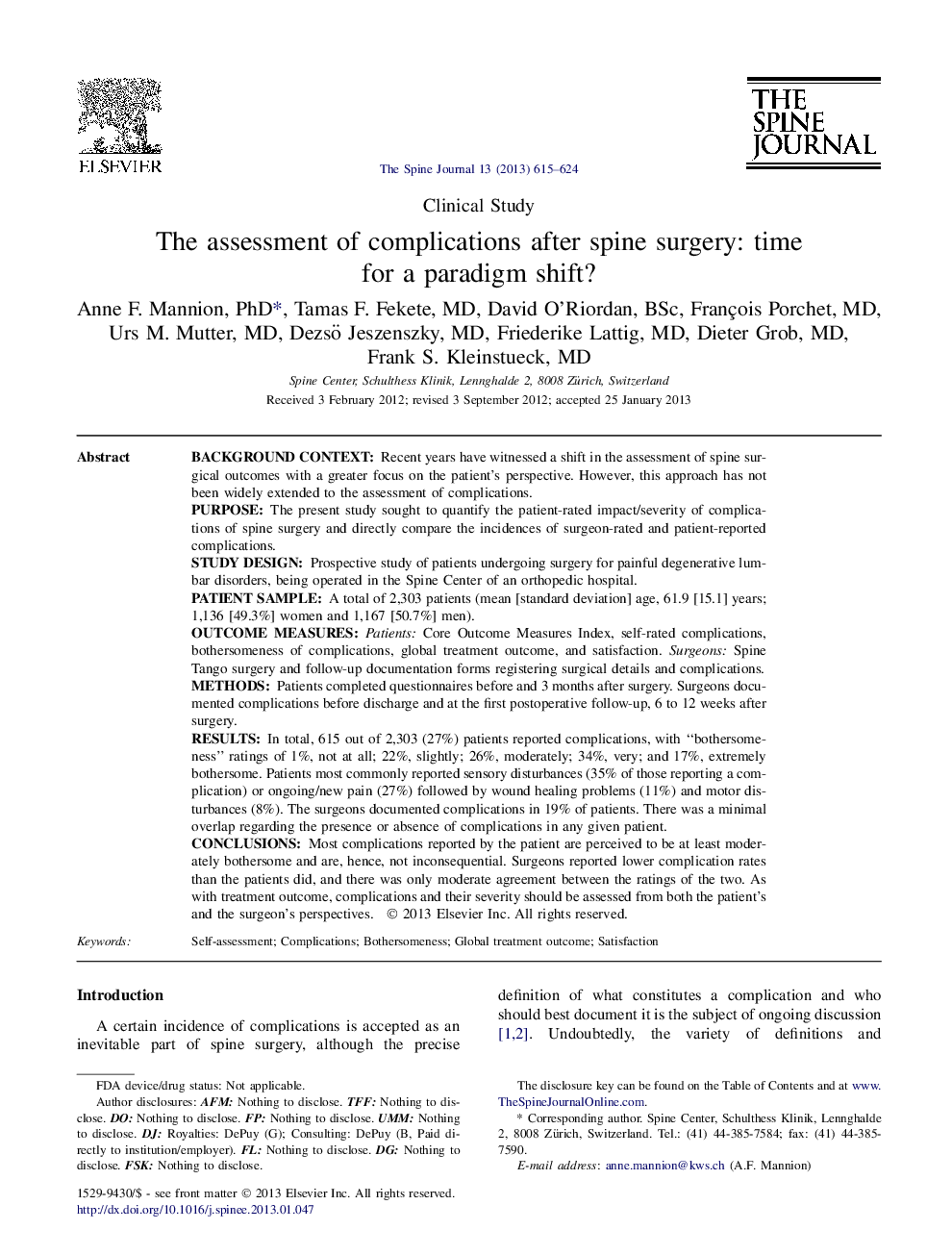| Article ID | Journal | Published Year | Pages | File Type |
|---|---|---|---|---|
| 4096888 | The Spine Journal | 2013 | 10 Pages |
Background contextRecent years have witnessed a shift in the assessment of spine surgical outcomes with a greater focus on the patient's perspective. However, this approach has not been widely extended to the assessment of complications.PurposeThe present study sought to quantify the patient-rated impact/severity of complications of spine surgery and directly compare the incidences of surgeon-rated and patient-reported complications.Study designProspective study of patients undergoing surgery for painful degenerative lumbar disorders, being operated in the Spine Center of an orthopedic hospital.Patient sampleA total of 2,303 patients (mean [standard deviation] age, 61.9 [15.1] years; 1,136 [49.3%] women and 1,167 [50.7%] men).Outcome measuresPatients: Core Outcome Measures Index, self-rated complications, bothersomeness of complications, global treatment outcome, and satisfaction. Surgeons: Spine Tango surgery and follow-up documentation forms registering surgical details and complications.MethodsPatients completed questionnaires before and 3 months after surgery. Surgeons documented complications before discharge and at the first postoperative follow-up, 6 to 12 weeks after surgery.ResultsIn total, 615 out of 2,303 (27%) patients reported complications, with “bothersomeness” ratings of 1%, not at all; 22%, slightly; 26%, moderately; 34%, very; and 17%, extremely bothersome. Patients most commonly reported sensory disturbances (35% of those reporting a complication) or ongoing/new pain (27%) followed by wound healing problems (11%) and motor disturbances (8%). The surgeons documented complications in 19% of patients. There was a minimal overlap regarding the presence or absence of complications in any given patient.ConclusionsMost complications reported by the patient are perceived to be at least moderately bothersome and are, hence, not inconsequential. Surgeons reported lower complication rates than the patients did, and there was only moderate agreement between the ratings of the two. As with treatment outcome, complications and their severity should be assessed from both the patient's and the surgeon's perspectives.
